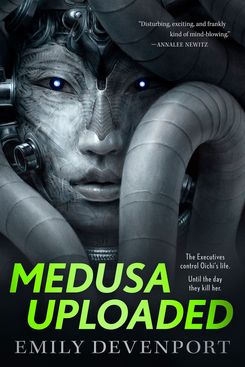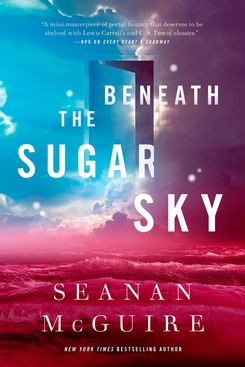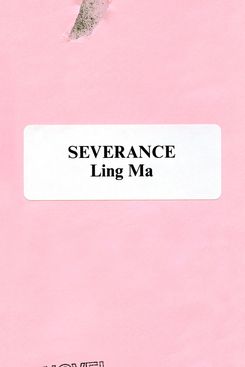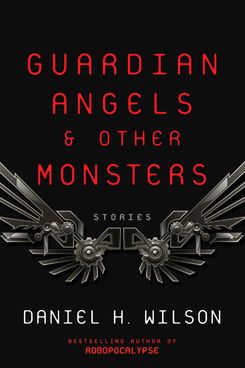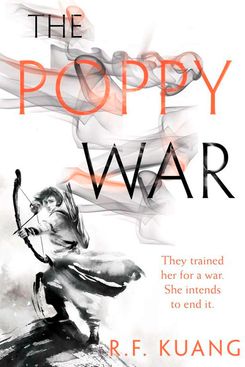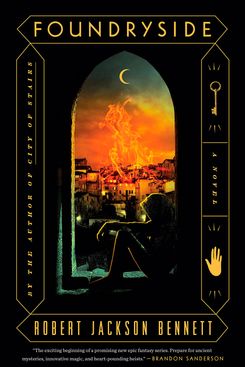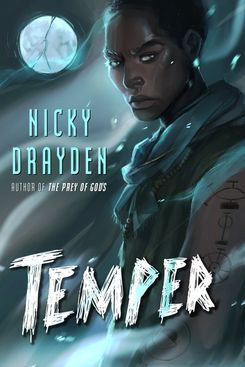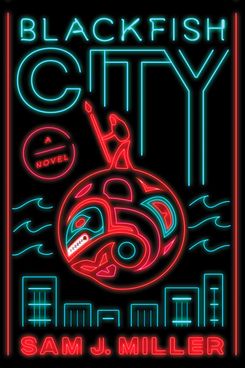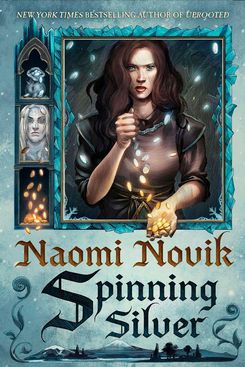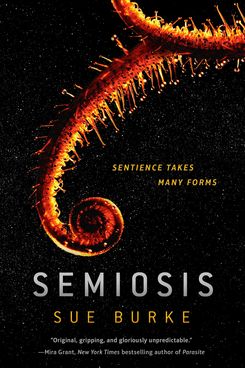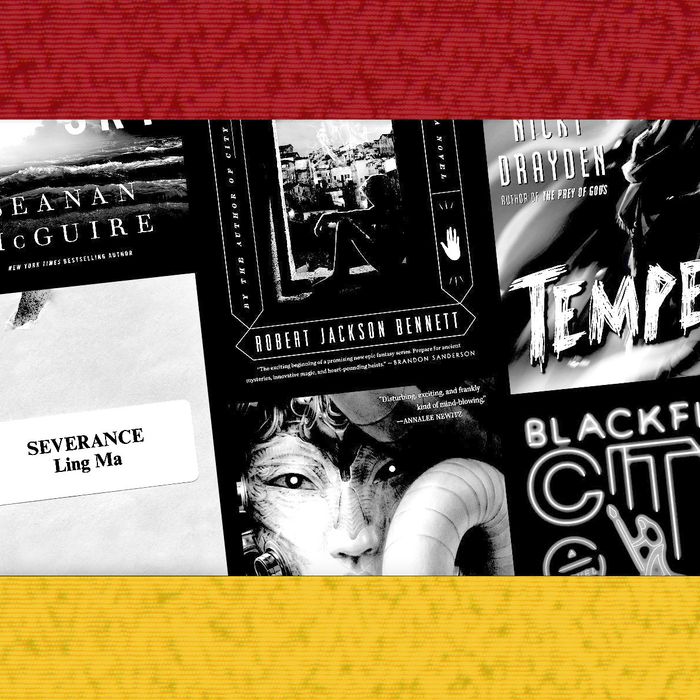
Books about other worlds are rarely just about other worlds. Science fiction sketches possible futures for humanity, and fantasy imagines parallel universes that resonate with our reality, no matter how divergent the details. A zombie plague and a merchant-dominated city-state each say something about capitalism. Robots and alien creatures make us ponder what it means to be human. And throughout, vivid, strange characters struggle with lives that feel powerfully real, as impossible as they may be. Here are the most powerful among those stories ÔÇö the ten best science fiction and fantasy books of 2018.
Oichi Angelis is a servant on the generation ship Olympia, most of whose sensory input is rerouted to the ruling Executives. As if thatÔÇÖs not enough of a signal that something is rotten on the Olympia, Oichi knows that their sister shipÔÇÖs destruction, which killed both her parents, was secretly orchestrated by Executives. And so, she is seeking revenge. This means a lot of murder, but it also means bonding with a powerful AI, and potentially inciting a revolution that will overthrow the OlympiaÔÇÖs rigidly enforced social hierarchies ÔÇö all while the ship is only halfway to its destination. But the Olympia is full of secrets, including some that stretch tantalizingly beyond its walls. This is a far-reaching and ambitious novel, not perfect but still an amazing ride.
Fantasy books are rife with children who go on magical adventures; Eleanor WestÔÇÖs Home for Wayward Children takes them in when they return. Beneath the Sugar Sky continues McGuireÔÇÖs Wayward Children series, but it works as a standalone novella, as well. A girl named Rini falls from the sky into a pool on the grounds of WestÔÇÖs school, seeking her mother ÔÇö long dead, since before Rini was even conceived. Which makes it even more important that Rini find a way to save her mother before she herself ceases to exist. Rini is joined on her quest by several young residents of the Wayward home, heading off into an equally dark and whimsical world called Confection. The adventure that follows is dark and whimsical, too, but itÔÇÖs lifted up by a sincere belief in the power of friendship.
Zombies have been metaphors for many diseases; in Ling MaÔÇÖs deft satire, itÔÇÖs the disease of modern capitalism. But these arenÔÇÖt the monsters youÔÇÖre used to; rather than eating brains, the victims of Shen Fever fall into the repetitive routines of life ÔÇö setting the table, reading a book ÔÇö going through the motions until their bodies fall apart. Fun! And yet Ma manages to balance her post-apocalyptic vision with just enough dry humor that itÔÇÖs neither grim nor heavy-handedly allegorical. Instead, Severance is simultaneously daring and restrained. We follow office worker Candace Chen through two parallel timelines ÔÇö one in which she slogs through her days at a publisher of specialty bibles; the other in which society has collapsed and Candace makes her way, with a small cult-like band of survivors, toward a promised land (or is it a mall?). MaÔÇÖs great skill is in making the familiar seem utterly fresh, even as she shows us how deadening our familiar lives can be.
ThereÔÇÖs something especially satisfying about a science fiction book of short stories, their multiplicity of worlds and possibilities assembled in one volume. The stories in WilsonÔÇÖs collection circle around questions of artificial intelligence and robotics ÔÇö and the ways in which they will change the human world. WilsonÔÇÖs playground is a plausible near-future, but the details are utterly surprising, filtered through the authorÔÇÖs innovative mind. These stories are full of family, memory, and the yearning for connection across lines of humanity and technology. Perhaps the most powerful piece in this collection doesnÔÇÖt have any robots in it, just a father and daughter and the rapidly approaching end of the world. In every story, Wilson brings a powerful sense of humanity to hard sci-fi.
RinÔÇÖs path as a fantasy heroine begins as familiar fare: a war orphan, she aces the national keju exam and is admitted to Sinegard, NikanÔÇÖs most prestigious military academy. There, sheÔÇÖs derided for her poor background and dark skin, but she soon discovers her innate powers and talent for shamanism. But this is much more than an Asian alt-history spin on Harry Potter; a real and devastating war is on the horizon. As the story moves from the schoolyard to the battlefield, Kuang doesnÔÇÖt shy away from violence, instead using it to complicate RinÔÇÖs ascent. This is the first book in a trilogy, but even this first installment covers a lot of ground, in plot and in thematic scope. ItÔÇÖs a complex, challenging, and incredibly ambitious novel.
In the city of Tevanne, four merchant houses vie for control, relying on scriving, a kind of magic through which inanimate objects are instructed to behave contrary to the laws of physics. Sancia Grando is a top-notch thief, sent on a mission to steal a key ÔÇö which turns out to be a sentient being named Clef, who is capable of telepathic communication with Sancia. Even in Tevanne, this is something strange. Stranger still is the complex plot Sancia discovers, and the building danger that threatens all of society. Bennett is endlessly inventive, equally adept at conjuring TevanneÔÇÖs world and magic and SanciaÔÇÖs troubled heart and mysterious past, not to mention a robust cast of secondary characters. Even when itÔÇÖs dark, this story is a joy.
DraydenÔÇÖs alt-future southern Africa is a study in dualities. Society is torn between extremes of science and religion, and almost everyone is half of a set of twins ÔÇö each pair sharing an array of virtues and vices. Auben is the unlucky twin, bearing six vices to his counterpartÔÇÖs single one and thus guaranteed a dismal future. As if that werenÔÇÖt bad enough, Auben starts hearing voices, and theyÔÇÖre telling him to do some very bad things. What follows is a story of demons, gods, family, and power that explodes epically. This is a thrilling and thrillingly weird book.
On a floating city in the Arctic, in the aftermath of environmental and social catastrophe, the residents of Qaanaaq have found a tenuous peace amid crime, corruption, and an ever-widening gulf between the wealthy and everyone else. Cue the arrival of an orcamancer ÔÇö riding a whale, with a polar bear in tow ÔÇö who sets a dramatic plot in motion. The social and political resonances with 2018 are powerful, but so is the story itself, a gripping thriller that manages to traverse some very bleak territory without ever becoming heavy or dour. As much as this story is practically dystopian, itÔÇÖs optimistic, too ÔÇö even galvanizing ÔÇö as MillerÔÇÖs outcasts embark on a captivating high-stakes quest.
Spinning Silver isnÔÇÖt quite a retelling of Rumpelstiltskin; it uses the fairy tale as a jumping-off point for an utterly original story that weaves together folklore, myth, history, and magic. Miryem, a Jewish moneylenderÔÇÖs daughter, saves her family from the brink of ruin with her ability to ÔÇö metaphorically ÔÇö spin gold. But things take a darker and more magical turn when MiryemÔÇÖs abilities attract the attention of the king of the Staryk, a race of powerful, otherworldly beings. Novik moves deftly among several narrators ÔÇö Miryem, a peasant, a dukeÔÇÖs daughter, the tsar ÔÇö to craft a complex story about love, greed, family, and power. ItÔÇÖs an extraordinary feat.
This first-contact story is up there with the best of Le Guin in terms of beautiful, engrossing, brilliantly imagined sci-fi. A ship of human colonists lands on a planet they name Pax, which is inhabited by familiar-enough plants and animals but no advanced life. The colonists soon discover, though, that in the absence of a dominant species, much life on Pax, which is a billion years older than Earth, has inched its way toward sentience. As the story unfolds across generations, Burke explores some essential scientific questions: Is intelligence the inevitable culmination of evolution? Is it limited to animals? How alien might an alien intelligence be? But just as compelling are the human stories Burke interweaves, stories of children and elders, leaders and scientists, and one particularly endearing animal keeper. A vividly imagined world is coupled with a gripping story, rich in biology and philosophy and humanity ÔÇö that of the humans and of the other characters, as well.


